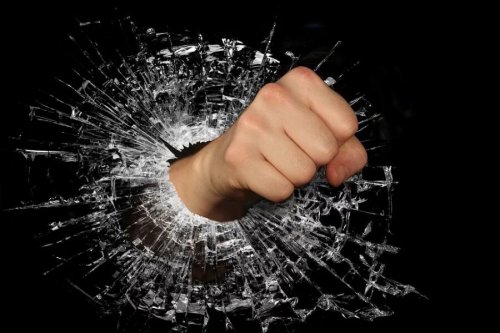
Any serious matter has its typical mistakes. Self-defense is a serious matter? So that applies to it too.
Mistakes and misconceptions are usually common among amateurs in this field. Beginners. The problem is that the “beginners” and “amateurs” here are often adults. Established people with life experience, unaccustomed to being students. This alone makes it difficult for many to learn (and even more difficult to teach!). And then there's the internet! The result: a jumble of unfiltered information in your head, coupled with the belief that you know your way around the subject. You don't even know your way around it, you just understand it!
On the other hand, the folk and everyday ideas absorbed during upbringing remain ingrained. Sometimes these factors contradict each other, sometimes they work in unison.
And such a person comes to a self-defense/martial arts school with a bunch of stereotypes that interfere with learning.
So, shall we get acquainted with some of the “standard set”? Let me warn you right away: it's normal for them to contradict each other! Firstly, you don't have to “catch” every misconception at once. Secondly, internal contradictions within us still manage to coexist. It's uncomfortable, but… But it's common.
1. “Better a small TT than judo and karate.”
Better. In some situations. And sometimes worse. Any weapon is good in a critical situation, when extreme measures are appropriate. And it's bad if you grab it when killing is inappropriate. Killing, precisely. Guns kill; that's what they were designed for. Be it a firearm or a knife. Threatening with them, trying to control your opponent, etc., is only appropriate if you're prepared to kill. Because with a gun, it's much easier than not killing.
By the way, do those who use this proverb actually have a weapon? At least a knife?
2. “It is better for twelve to judge than for four to carry.”
It seems true. It would be true if it didn't lead to unhealthy illusions… But are they ever healthy?
People often think that if the need arises, they'll tear everyone apart, literally kill them, and come what may. How many people who say this actually consider whether they'll be able to carry out their promises, if necessary? Both physically and, most importantly, psychologically? Have you tried it yet? If not, then your confidence is based on nothing!
2. “I want to learn a couple of techniques.”
“A couple” might be enough. Although in reality, it's more likely to be a dozen techniques honed to the point of automatism—and that's what's often overlooked. So, “learning” doesn't mean “watching and repeating.” You'll definitely have to put in the work!
Even hand-to-hand combat techniques aren't always the most important thing. Equally, if not more, important is the ability to move. Agility, coordination, for example. If you lack these, there's no guarantee the techniques will work. And you can't develop them without poor coordination.
3. “It doesn't take much force to knock someone out.”
The most important factors in combat are physical fitness, strength, and speed. Unfortunately, without them, “techniques” may be useless. It's a dangerous illusion to think that skill replaces strength. That is, skill does replace it, but try to achieve it!
4. “The best defense is a good offense.”
That's true. Only in practice, those around you, and later judges, may perceive you as the aggressor.
By the way! Are you good at attacking? Are you confident you can immediately disable your opponent?
5. “You can't strike first.”
As the saying goes, “In karate, you don't attack first; in karate, you strike first.” This means taking preventative, preemptive action when an opponent is aggressive.
6. “Colt made everyone equal.”
A common illusion is relying on a legal weapon for self-defense. It's not that it's useless—it's just that you need to rely on yourself. A weapon is nothing more than a tool in the right hands. I'll point out one thing: a weapon must be carried in a way that allows you to use it immediately. That is, a traumatic pistol (or even a combat pistol!) in the back of your bag is the same as not having one at all.
Besides, it's legal because it doesn't have the effectiveness of a combat weapon. So the results are unpredictable. And in any case, any weapon requires training!
7. “You have to be a real man.”
A “real man” doesn't have to be either an idiot or suicidal. Don't push your luck. Remember these good principles:
– if you see a fool, go around him;
– the best fight is the fight that didn’t take place;
— the best commander is not called “all-conquering”, but “invincible”.
8. In the event of a physical conflict, there may not be a fight, or actual hand-to-hand combat.
In reality, the one who lands the first effective blow wins. There's a brief pause in the opponent's actions, during which they are finished off.
A real fight is neither a brawl nor a sport. Although fighting skills are the foundation of everything.
And most importantly: if there's nothing and no one to protect, leave the dangerous area as quickly as possible. In other words, running is the best self-defense!






